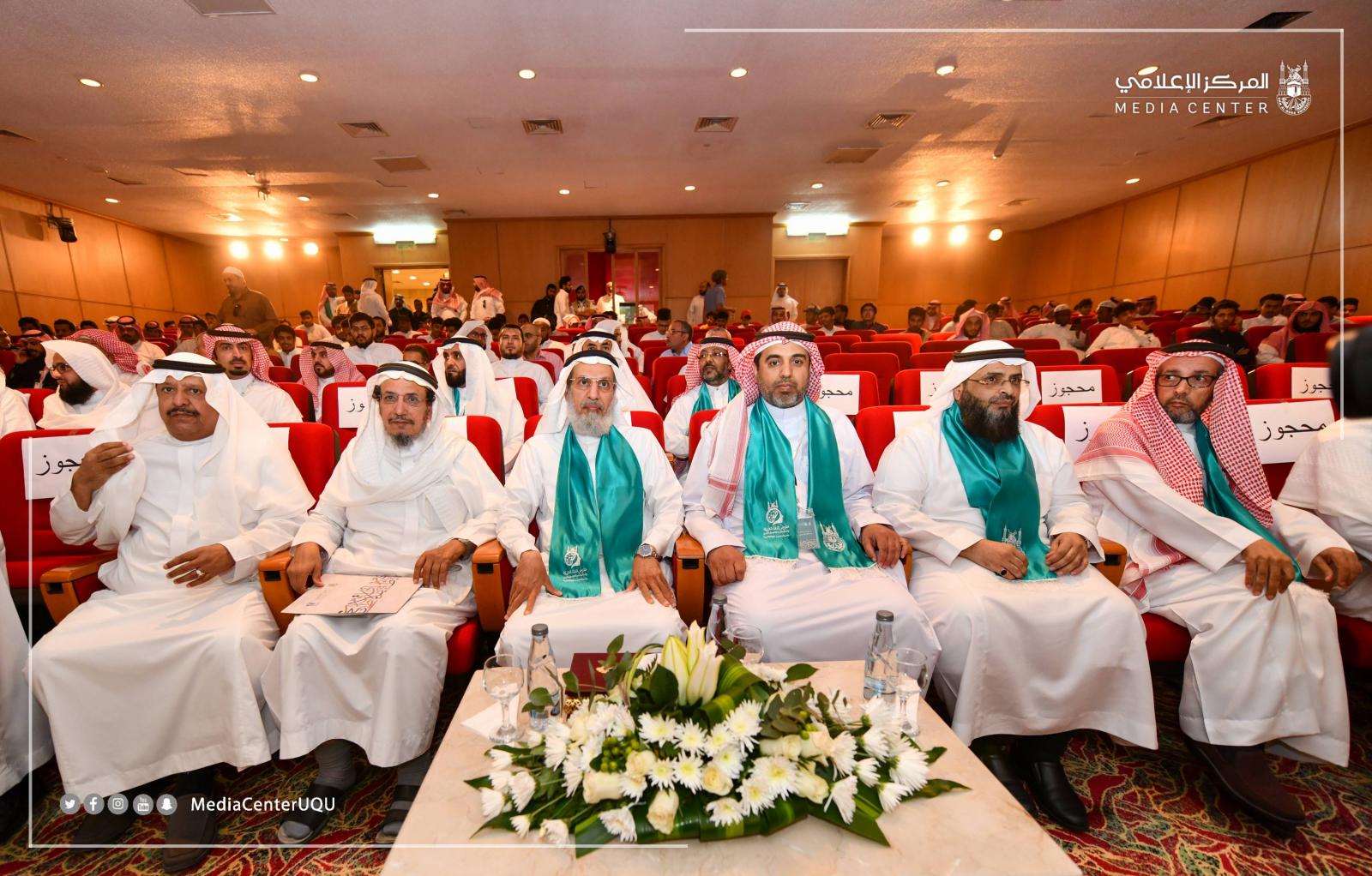
Today, Sunday, the events of the Arabic Language and Artificial Intelligence Exhibition were launched. The exhibition is organized by the College of Arabic Language at Umm Al-Qura University, and will be held for two weeks at the King Abdulaziz Historical Hall in Al-Abdiyyah. The exhibition demonstrates the stages of the development of writing implements throughout history, leading to the use of computer technology fields for the processing of Arabic and for promulgating it worldwide. The events are held under the patronage of His Excellency the President of Umm Al-Qura University, Prof. Abdullah Bafail, and were launched in the presence of the deans, vice deans, and deputy heads of the departments.
The Dean of the College, Dr. Yusuf Al-Sulami, stressed the interest of the college departments, and their support in the fields of Arabic language with regard to teaching, research and publication in every corner of the world. Moreover, it has endeavored to keep abreast of the latest technologies for employing computer science within its study programs for computational linguistics courses and applied linguistics, in addition to creating a program to provide master's students with Arabic teaching skills and using the latest technology in education.
The Vice Dean for Educational Affairs, Dr. Saeed Al-Yazid, explained that the accompanying exhibition focuses on the fields of employing artificial intelligence in serving the Arabic language and translating it into many languages. In addition, programs are displayed that search for synonyms, antonyms, plurals of words, and symbol analysis, according to the correct semantic meanings. The exhibition also contributes to the development of the art of recitation and poetic appreciation through the presentation of encyclopedia programs and the analysis of available poetic texts.
Dr. Al-Yazid said, “We were keen to review the contributions of the Kingdom of Saudi Arabia in consolidating the concepts of the Arabic language and its fields of interest in the various programs that support it. This could be achieved through the establishment of specialized centers that verify and publish research studies and language references, and the creation of research chairs and a series of important interactive and technical initiatives that achieve the kingdom’s approved goals regarding the preservation of the Arabic language and its uses. In addition, there are efforts to enable the adoption of Arabic as a primary language within the six languages approved in all organizations through its external contributions to Arabic education programs for non-native speakers. This could be achieved through funding grants at foreign universities as well as projects to improve the level of the general education of the students in the member states."
Dr. Saeed explained that there are a total of 23 training course series and educational lectures. They deal with the direct relationship between the Arabic language and artificial intelligence, and their compatibility in consolidating the fields and sciences of the Arabic language to be part of the tools of modern technology, making it available as an information base that supports its students and researchers. The base is run by a group of faculty members in the male and female sections of the college.
At the end of the event, Dr. Abdullah Bafail honored the former deans of the College of Arabic Language and the organizing and participating bodies, appreciating their efforts in activating the program and the accompanying exhibition to celebrate the World Arabic Language Day 2019. He also praised the college’s contributions to keep abreast of the developments of technical development programs, and to integrate them in the education curricula for the undergraduate and graduate levels.